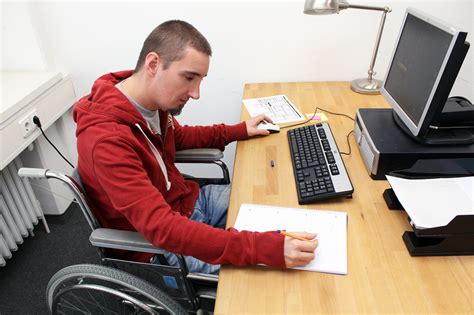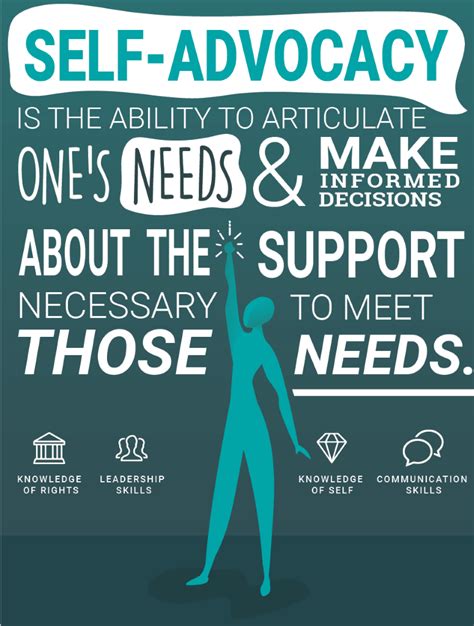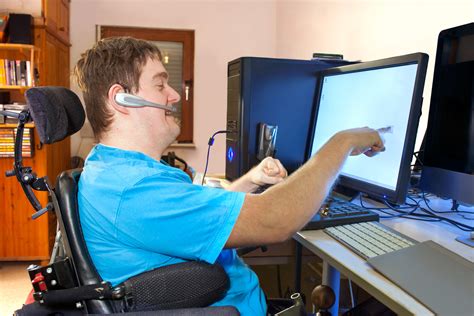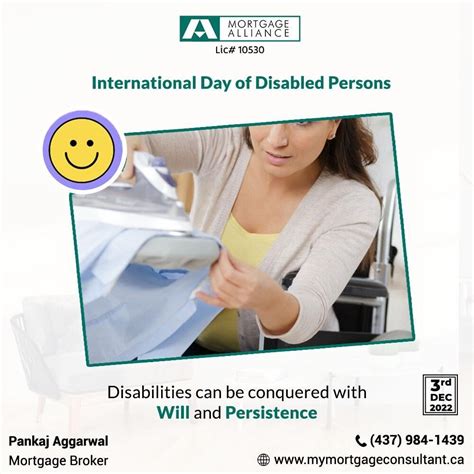- Identifying and Leveraging Your Unique Skills and Talents
- Finding and Navigating Job Opportunities for People with Disabilities
- Starting Your Own Business: Tips and Tools for Entrepreneurship
- Maximizing Social Security Disability Benefits and Other Financial Assistance
- Overcoming Stigma and Discrimination in the Workplace and Society
Identifying and Leveraging Your Unique Skills and Talents
When it comes to making money as a disabled person, it is important to first identify and leverage your unique skills and talents. While you may have physical limitations that prevent you from working certain jobs, you likely have a wealth of untapped strengths that can help you succeed in other areas.
The first step in identifying your unique skills and talents is to reflect on your experiences and interests. What activities do you enjoy doing? What challenges have you overcome in your life? What have others told you that you are good at? Answering these questions can help you uncover your natural abilities and passions.
It is also important to consider the specific accommodations or tools that you may need to perform a task. For example, if you have mobility issues, you may need an adaptive keyboard or mouse to use a computer effectively. Knowing what tools you need to succeed can inform the types of work you pursue.
Once you have a sense of your strengths and limitations, it is time to start exploring opportunities. You may want to consider starting your own business, freelancing, or exploring remote work options that allow you to work from home. These types of work arrangements can offer greater flexibility and the ability to tailor your work environment to your specific needs.
When searching for work opportunities, it is also important to network and build connections with others in your industry. Joining professional organizations, attending networking events, and connecting with others on social media platforms like LinkedIn can help you uncover hidden job opportunities and build a support system of like-minded individuals.
Finally, remember that it is okay to ask for help. Whether it is requesting a workplace accommodation or reaching out to a mentor for guidance, there are resources available to help you succeed. Don’t be afraid to advocate for yourself and your needs.
In summary, making money as a disabled person requires identifying and leveraging your unique skills and talents. Reflect on your experiences and interests, consider the tools and accommodations you need, explore different work arrangements, and build connections with others in your industry. With perseverance and support, you can find fulfilling work that allows you to thrive and achieve your goals.
Finding and Navigating Job Opportunities for People with Disabilities
Having a disability can be a significant challenge, especially if it limits one’s ability to earn a living. Fortunately, there is a wide range of job opportunities available for people with disabilities. The key is to find those opportunities and navigate the employment landscape successfully. Here are some tips on how to find and navigate job opportunities for people with disabilities.
Firstly, it’s essential to identify the types of jobs that align with one’s interests and skills. Disabled people should research companies and industries that have historically been receptive to hiring individuals with disabilities. These industries include healthcare, education, social work, technology, and government. By focusing on these job sectors, it increases one’s chances of locating relevant job opportunities.
Networking is also crucial. Networking provides an opportunity to meet people in the desired industries who may offer recommendations on possible job openings. Networking may include attending industry conferences, joining a professional association of disabled people, and connecting with people on LinkedIn. Additionally, leveraging social media to create an online presence where one’s skills, abilities, and career goals can be displayed is very useful in forging connections with potential employers.
Another option to find job opportunities is contacting staffing agencies and job placement centers specializing in recruiting people with disabilities to identify job openings explicitly tailored to meet the needs of disabled job seekers. These job centers often provide skills development and training that disabled people need to be successful in a particular industry or job role. Companies often rely on these agencies to help them meet their diversity and inclusion quotas, making them an ideal resource for job seekers.
It’s also crucial for job seekers with disabilities to be comfortable with disclosing their disabilities when discussing possible job opportunities with recruiters or hiring managers. Job seekers often struggle with this, seeing it as a disadvantage. However, disclosing disability is an opportunity to discuss how the employer can accommodate the needs of disabled people in the work environment. This opens up the conversation about how the working environment can be tailored to meet the needs of a disabled employee and allows the candidate to negotiate for additional accommodations if necessary.
Lastly, job seekers should consider partnering with disability rights organizations that can offer support services to help any disabled job seeker navigate the job market. Disability rights organizations help disabled people understand their rights under the Americans with Disabilities Act (ADA). Additionally, they provide legal aid and advice on how to handle any employment discrimination.
In conclusion, finding and navigating job opportunities for people with disabilities is achievable by focusing on identifying job opportunities of interest and leveraging relevant networking tools. Job seekers should not shy away from disclosing their disabilities and should instead focus on how accommodations and accessibility needs could be met in the workplace. Additionally, partnering with disability rights organizations can provide valuable support services that will help disabled individuals navigate the job market with confidence.
Starting Your Own Business: Tips and Tools for Entrepreneurship
If you’re a disabled person and have an entrepreneurial spirit, starting your own business may be a great way to earn money on your own terms. Being your own boss can give you the flexibility you need to work around your disability, and it can be a rewarding experience to build something from the ground up. Here are some tips and tools to help you get started.
1. Focus on Your Passion
The first step in starting your own business is to identify what you’re truly passionate about. Maybe you love baking, or you have a talent for computer programming. Whatever it is, focus on that passion and think about how you can turn it into a profitable business. Don’t be afraid to think outside the box and be creative in your approach.
2. Develop a Business Plan
Once you have a solid idea for your business, the next step is to develop a business plan. This is an important document that outlines your goals and objectives, as well as your plans for financing, marketing, and operations. It can serve as a roadmap to help you stay on track as you build and grow your business.
3. Find Funding
One of the challenges of starting a business as a disabled person may be finding the funding you need to get started. Luckily, there are a variety of resources available to help you find funding, from small business loans to grants and crowdfunding campaigns. Some organizations also offer funding specifically for disabled entrepreneurs, so be sure to research all your options.
One great resource is the Small Business Administration (SBA), which provides a range of services to help entrepreneurs start and grow their businesses. They have programs specifically for disabled entrepreneurs, including the AbilityOne Program, which helps people who are blind or have other severe disabilities start and run successful businesses.
Another option is to look for grants specifically for disabled entrepreneurs. Many organizations offer grants and awards to support disabled entrepreneurs, such as the National Disability Institute and the Disabled American Veterans.
Crowdfunding can also be a great way to raise funds for your business. Sites like Kickstarter and GoFundMe allow you to create a campaign to raise money from people who believe in your vision. Make sure to create a compelling pitch that explains why your business is unique and deserves support.
4. Build a Support Network
Starting a business can be a lonely journey, but it doesn’t have to be. Building a strong support network can help you stay motivated and focused, even when things get tough. Look for networking groups, mentors, and other entrepreneurs who can offer guidance and support as you build and grow your business.
There are many online communities specifically for disabled entrepreneurs, such as the Disability Entrepreneurs Network and the American Association of People with Disabilities. These groups can be a great resource for finding support and advice from people who have been in your shoes.
5. Embrace Technology
Technology can be a powerful tool for disabled entrepreneurs, allowing you to work from home, connect with customers, and automate many of your business processes. There are a variety of tools and apps available to help you manage your business, from accounting software to social media schedulers.
One great resource is the Job Accommodation Network, which provides information on technology and other accommodations for people with disabilities. They can help you find the right tools and resources to help you work more efficiently and effectively.
Starting your own business as a disabled person can be challenging, but it can also be incredibly rewarding. With the right resources and support, you can build a successful business and achieve your entrepreneurial dreams.
Maximizing Social Security Disability Benefits and Other Financial Assistance
If you are a disabled person, you may be eligible for financial assistance from the government. Social Security Disability Benefits are a primary source of funding for people with disabilities, but there are other options available to you as well.
First, let’s talk about Social Security Disability Benefits. If you have a disability that has lasted or is expected to last for at least one year, you may be eligible for Social Security Disability Benefits. To be eligible, you must have worked a certain number of years and paid Social Security taxes. The amount of benefits you receive depends on your earnings record.
If you are approved for Social Security Disability Benefits, there are ways you can maximize your benefits. One way is to apply for benefits as soon as possible. The longer you wait, the longer it will take to receive benefits. You may also be able to receive back pay for the time you were disabled but waiting for benefits.
Another way to maximize your benefits is to work part-time while receiving benefits. The Social Security Administration has a program called Ticket to Work which allows you to work and still receive benefits. This can be a great way to supplement your income and improve your quality of life.
There are other financial assistance programs available to disabled individuals as well. The Supplemental Security Income (SSI) program provides monthly payments to people with low income and little or no assets. To be eligible for SSI, you must have a disability and meet certain income and asset requirements.
The Medicaid program is another form of assistance available to people with disabilities. Medicaid provides health insurance to low-income individuals and families. If you are eligible for SSI, you are automatically eligible for Medicaid as well.
The Department of Veterans Affairs also provides benefits to disabled veterans. If you were injured during your service, you may be eligible for disability compensation, which is tax-free and paid monthly. The VA also provides other benefits such as education and training, housing assistance, and vocational rehabilitation.
There are also non-governmental organizations that provide financial assistance to people with disabilities. The Muscular Dystrophy Association, for example, provides assistance with medical expenses and equipment, as well as support groups and advocacy services. The National Multiple Sclerosis Society also offers financial assistance for medical expenses and mobility equipment.
In conclusion, there are many ways to receive financial assistance if you are a disabled person. Maximizing Social Security Disability Benefits and taking advantage of other financial assistance programs can greatly improve your quality of life. It’s important to explore all options available to you and see what programs you may be eligible for.
Overcoming Stigma and Discrimination in the Workplace and Society

Being a disabled person in today’s society can be a challenge. One of the hardest things that a disabled person faces is overcoming the stigma and discrimination that can come with being disabled. Discrimination is something that can be seen in many different forms, from the way that people are treated in the workplace to the way that they are treated in their daily lives. Overcoming that discrimination is something that can be difficult, but it is not impossible. In this article, we will discuss some ways that you can overcome the stigma and discrimination that comes with being a disabled person, specifically in the workplace and society as a whole.
1. Educate Others

Educating others is one of the most important ways that you can overcome the stigma and discrimination that comes with being a disabled person. By educating others about the challenges and barriers that disabled people face, you can help to break down those barriers and create a more inclusive society. It is important to remain patient when educating others, as many people may not understand the struggles that disabled people face. Be sure to provide clear and concise information about the challenges that disabled people face and how they can be overcome.
2. Advocate for Yourself

Advocating for yourself is another important way that you can overcome the stigma and discrimination that comes with being a disabled person. It is important to speak up when you feel that you are being treated unfairly, and to advocate for the accommodations that you need in order to perform your job or participate fully in society. This can be difficult, as many disabled people may not feel comfortable advocating for themselves. But by speaking up and sharing your perspective, you can help to create a more inclusive and accepting environment for all disabled people.
3. Find Support

Finding support is another key way that you can overcome the stigma and discrimination that comes with being a disabled person. There are many different organizations and support groups that are dedicated to helping disabled people, and they can be a great resource for information, advice, and emotional support. Connecting with others who have similar experiences can help to create a sense of community and belonging, which can be especially important for disabled people who may feel isolated or marginalized.
4. Focus on Your Strengths

It is important to focus on your strengths as a disabled person, and to celebrate the unique qualities and talents that you bring to the table. Many disabled people have a different perspective on the world, and this can be a valuable asset in the workplace and in society as a whole. By embracing your strengths and talents, you can help to break down the negative stereotypes and misconceptions that are often associated with being a disabled person.
5. Be Persistent

Finally, it is important to be persistent when overcoming the stigma and discrimination that comes with being a disabled person. Rome was not built in a day, and changing attitudes and perceptions can take time. But through persistence and perseverance, you can help to create a more inclusive and accepting environment for all disabled people. Keep pushing forward, and do not give up in the face of adversity.
In conclusion, overcoming stigma and discrimination as a disabled person can be a challenging but rewarding experience. By educating others, advocating for yourself, finding support, focusing on your strengths, and being persistent, you can help to create a more inclusive and accepting society for all disabled people.

